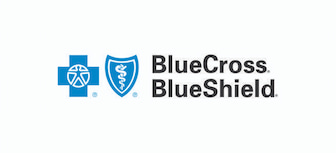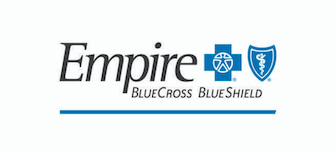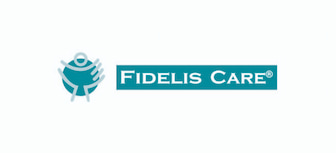Does Medicare Cover My Appointments with a Urologist?
Original Medicare covers many medical services needed to maintain your health, including urology. Medicare Part A may cover a hospital stay if needed, while Part B includes outpatient care like lab work and diagnostic tests.
If you’re age 65 or older, you’re eligible for Medicare, a federal health insurance program. This insurance also covers some people younger than 65 who are disabled or have certain illnesses, including end stage renal disease.
Manhattan is densely populated, so it includes hundreds of skilled physicians. If you’re on Medicare and your Manhattan primary care doctor determines you need the expertise of a urology specialist, book an appointment with a urologist in Manhattan who takes Medicare. Fortunately, many of the best urologists in Manhattan accept Medicare.
What Conditions Does a Manhattan Urologist Who Takes Medicare Treat?
A urologist is a physician who specializes in conditions involving the urinary tract, which includes the kidneys, ureters, urethra and bladder. Urology also includes diagnosis and treatment of problems with the male reproductive system.
Conditions that a urologist treats include:
- Urinary tract infections (UTIs)
- An overactive bladder
- Kidney stones
- Pelvic organ prolapse
- Cancers of the kidneys or bladder
As men age, changes in the reproductive system can affect their urinary tract and sexual health. Conditions that frequently affect older men can be treated by a Medicare urologist in Manhattan.
They include:
- Erectile dysfunction
- Declining libido
- An enlarged prostate
- Prostate cancer
Lumps on your testicles or testicular pain aren’t normal. Men who notice these symptoms should book an appointment with an NYC urologist for an expert evaluation as soon as possible.
What Symptoms Indicate a Need to See a Manhattan Urologist?
Anything that seems out of the ordinary with your urinary system may be an early sign that you need to see a urologist in Manhattan who takes Medicare.
Symptoms you may experience include:
- Needing to urinate more frequently than usual
- Feeling like you can’t empty your bladder
- Recurring UTIs
- Blood in your urine
- Urine that’s cloudy or a strange color
- Urine that has an odd odor
Your urologist can perform a vasectomy, a permanent procedure for male birth control. You may also book an appointment with a urology specialist if you’ve been unable to conceive a child after trying for a year, a condition sometimes caused by male infertility.
Women are more prone to developing UTIs, but men can get them too. UTIs in men aren’t as obvious, so they often go undiagnosed.
Symptoms in elderly men and women that can signal a UTI include:
- Dementia
- Trouble with balance
- Fatigue
- Dizziness
- Reduced appetite
- Low blood pressure
- Increased heartbeat
- A new instance of incontinence
What Can I Expect When Visiting a Urologist in Manhattan Who Takes Medicare?
Your Manhattan urologist who takes Medicare gathers as much information as possible to arrive at an accurate diagnosis.
This includes:
- Discussing your symptoms, such as how long you’ve had them and how they’re affecting your daily life
- Reviewing your medical history and your family’s medical history
- Reviewing records or test results forwarded by your primary care physician
- Doing a physical examination
It’s possible you may need to undergo additional tests, such as blood tests, urine tests or imaging tests. Your urology doctor may also use a cystoscope, a long thin tube with a camera, to see the inside of your urinary tract. Your urologist has specialized knowledge to diagnose the cause of your symptoms. When you book an appointment with one of the top urologists in Manhattan, your treatment plan is customized to your unique needs.
Do I Have to Worry about Out-of-Pocket Costs if I’m on Medicare?
With any health insurance plan, you may have out-of-pocket costs. Make sure your insurance covers the services you need and find out what costs you’re responsible for, including co-payments.
Ways to protect yourself against unexpected expenses include:
- Before you book an appointment with a Manhattan urologist, confirm that they accept your Medicare plan.
- If you need urological surgery, find out ahead of time how much your insurance covers and how much you’re expected to pay.
- Check your insurance policy to find out what your deductible is. This is the amount you must meet before Medicare pays for any services.
Medicare usually covers office visits and procedures that are considered medically necessary. Medicare Part A includes coverage for inpatient hospital stays, while Medicare Part B includes coverage for doctors’ visits and diagnostic tests. Sometimes, it limits coverage to 80 percent. A Medicare Advantage plan usually covers the remaining 20 percent, minus a low co-payment. Learn about your plan.
Medicare Part A and Part B don’t include coverage for medications. If you’re on Medicare, you can obtain prescription drug coverage from Medicare Part D or a Medicare Advantage program. Different plans have varying drug prices. Typically, some medications are provided at little or no cost, while others require a bigger co-payment.
What Kind of Treatments Do Manhattan Urologists Offer?
Urological conditions are usually treated with medication or surgery. The treatment required for your particular condition depends on your diagnosis, your age and your general overall health.
Treatments offered by a Manhattan urology specialist include:
- Antibiotics for infections
- Medication to reduce urinary frequency
- Medications for erectile dysfunction
If these less invasive treatments don’t produce the desired results, your urologist may suggest a surgical procedure, such as:
- Breaking up or removing kidney stones
- Repairing damaged organs after a trauma
- Correcting pelvic organ prolapse with reconstructive surgery
- Putting you on a register for a kidney transplant
Cancer of the urinary tract or male reproductive organs may be treated with either chemotherapy or surgery. The earlier you get treatment for urinary and reproductive system conditions, the better your chance of a complete recovery with less risk of developing serious consequences. If you have any concerns about your urinary tract or pelvic organs, book an appointment with a Medicare urologist in Manhattan today.


 My BestDoc
My BestDoc
 Future Appointments
Future Appointments
 Settings
Settings
 Sign out
Sign out










